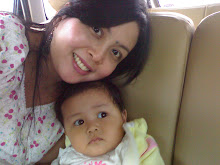How often should I breastfeed my baby?
| Frequently! In the first few weeks most babies need to feed eight or more times in 24 hours. Feeds may not be evenly spaced during the day and it is common for babies to feed very frequently during the evening in the first few months. Those who work with new mothers say this is often the hardest thing to cope with. Mothers are sometimes unprepared for the relentless feeds and exhaustion. New babies are often hungry and take frequent small feeds. You’ll need to learn to recognize your baby’s hunger cues, so you can feed him when he’s relaxed. This takes time. He may indicate he’s ready to feed by searching around with an open mouth. Try to feed him before he’s ravenous and screaming. It is near impossible to get a distraught baby to latch on. Concentrate on getting your baby to feed efficiently – positioning him well, waking him if he gets sleepy, and persevering until he has drained one breast and had some milk from the other. If he gets a good feed of milk, he will sleep well, and feed well, and eventually the number of feeds will drop back and you will get into some sort of routine. By eight or nine weeks, expect your baby to start to go longer between feeds. By three months you might have settled into a pattern of maybe around six feeds over a 24-hour period (but this will differ depending on the size of your baby and other factors). Night feeds are important for most babies for many months, so don’t expect your child to “sleep through” for quite some time. |
How long should I feed?
| This varies from baby to baby. Ideally the baby will come off the breast when he’s finished. Try to make sure your baby is having a proper feed. His cheek should be well-rounded and watch for a rhythmic suck, suck, swallow. Don’t let your baby sleep on the breast when he should be feeding. If he is sleepy, take him off the breast and remove some clothing to wake him up. Empty one breast fully at each feed. Then have a break and offer the other. He may not want to empty the second breast completely. Next time start with that breast first. The hind milk at the end of the feed is the most satisfying for the baby. If he just takes the foremilk from each breast, he’ll be hungry again more quickly. Emptying the breasts completely also helps prevent breast infections. |
How can I tell if my baby is getting enough milk?
| It’s normal for newborns to lose weight in the first few days, but most babies regain their birth weight by two weeks. After that they usually gain 100-200g per week for the first few months. After they are a few days old, most babies should have at least six wet nappies a day and at least two bowel motions a day until they are around six weeks old. A baby who is wetting frequently, gaining weight and thriving is getting enough milk. But if you’re not sure, seek advice immediately as there are things you can do to improve your milk supply. |
How long should I aim to breastfeed my baby?
| If possible babies should be exclusively breastfed for six months. Ideally solids should be introduced after six months, but definitely not before four months. If you want to start before six months, see your Plunked nurse first. Breastfeeding can continue for as long as you and your baby desire. |

No comments:
Post a Comment